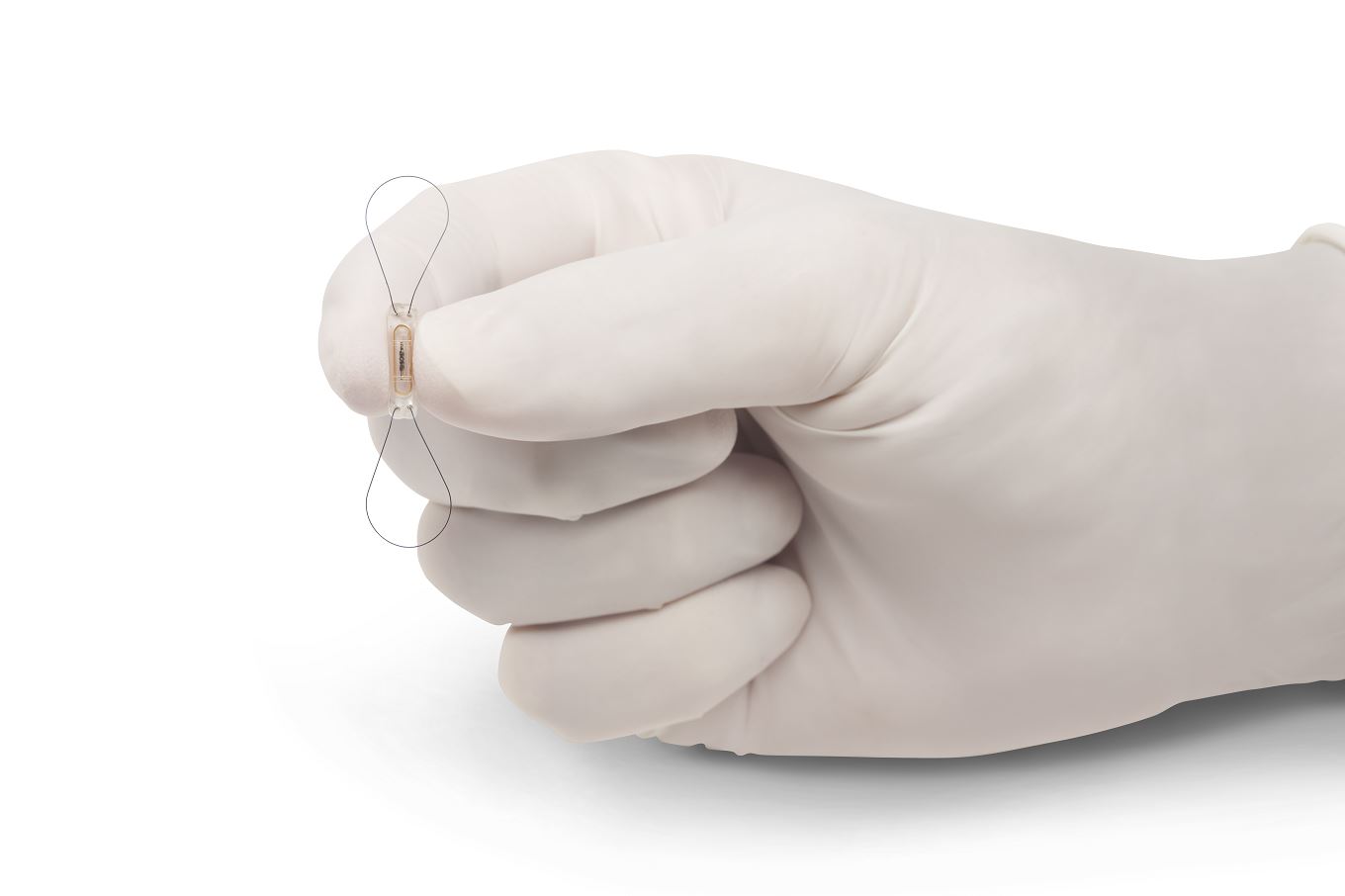UConn Health’s Pat and Jim Calhoun Cardiology Center is now using a tiny, implantable sensor to wirelessly monitor its heart failure patients daily and from afar.

“Imagine a time when you could implant a sensor into the pulmonary artery that would enable you to monitor at will the pressure exerted by the heart on the lungs,” said Dr. Michael Azrin, director of the cardiac catheterization laboratory and interventional cardiology at UConn Health. “Well, that time is now.”
The dime-sized sensor is minimally invasively implanted during a brief cardiac catheterization procedure to detect any future increases in pulmonary artery pressure. By remotely measuring this pressure cardiologists and medical teams are now able to learn in real-time if a patient’s heart failure is worsening before a patient’s symptoms of fluid retention, weight gain or elevated blood pressure arise.
UConn Health cardiologists are using the advanced technology to proactively enhance the monitoring of each heart failure patient’s chronic symptoms, reduce their chances of being readmitted to the hospital, adjust their medication levels rapidly when needed, and most importantly improve the quality of their daily life.

“One of the biggest challenges for me, as a doctor for many heart failure patients, is to figure out what’s happening inside the body. How is the heart pumping? How are the lungs?” said Dr. Jason Ryan, director of UConn Health’s Heart Failure Center. “The new device gives me this information every day from the patient’s home. This is a huge leap forward in technology and will help me improve the lives of my heart failure patients.”
Today, nearly 6 million American’s are living with heart failure, the heart muscle’s inability to pump enough blood to meet the body’s full demands, and 900,000 new cases are expected to be diagnosed this year.
The condition causes fluid retention and shortness of breath that often sends many heart failure patients to emergency rooms. In fact, heart failure is the leading cause of hospitalization for those over age 65.
However, this first-of-its-kind and FDA-approved CardioMEMS HF System has been shown to significantly reduce the likelihood of heart failure patient hospitalization by up to 37 percent.
To learn more about the Calhoun Cardiology Center, visit here.



